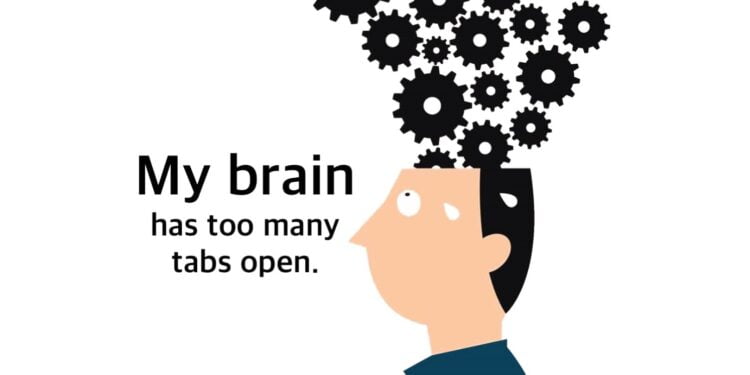For ages, we have been hearing from our peers, friends & acquaintances that a multitasker is one who is ‘gifted’ & is ‘a matter of pride’. Now a days, many organizational settings demand from their employees to be a multitasker, considering multitasking helps to increase work efficiency & productivity. In fact, business executives seek help from professionals to train & empower employees at work to become more efficient multitaskers. Even in everyday society the ability to multitask is frequently praised as a quick way to get more tasks done in less time. However, recent studies have revealed that multitasking is a matter of concern. Earl K Miller, a neuroscience professor at the Picower Institute for Learning & Memory, Massachusetts Institute of Technology’s, states that, “You can’t multitask as our brains are wired to do just one cognitively demanding thing at a time & we tell ourselves we’re multitasking, when what we’re doing is task-switching, rapidly shifting from one thing to the next. As we toggle, our minds stumble as we try to recall where we were and what we were doing”. To elaborate & understand better, take an example of switching between excel sheet and writing an email. While working on excel sheet (task one) it activates a corresponding neural circuit/network & when we switch our focus & attention to second task of writing an email brain must put a quell on the previously active circuit thereby amplifying neural circuit corresponding to the new task. This takes additional time to shift mental gears between switching of goals, to turn off the cognitive rules of the old task and turn on new rules for the next, a type of cognitive control.
The ‘cognitive’ downside of multitasking:
- Rendering one to stay unfocused.
- Perturbed selective & sustained attention
- Seesaw of inhibitory control & mental flexibility
- Difficulty in grasping complex concepts or summarizing information
- Reduced retention of information
- Less efficiency and error-prone behavior
- Increase in brain fog & stress.
- Time delay in task completion.
- Behavioral issues like irritability, frustration due to unfinished tasks or tasks not up to the mark.
- Zeigarnik effect; wherein our brains tend to remember unfinished tasks better than completed ones rendering the lingering thoughts of the previous task haunting thereby diminishing focus and productivity.
How to avoid multitasking
Various research suggests that it takes an average of 25 minutes to come back to the original task after switching and this is called as ‘25 minutes trap’. To adjust this ‘cognitive trap’ the best way is to implement ‘Pomodoro method’, a time management protocol of 25-minute stretches of focused work broken by 5 to10 minute breaks. During the break of 5 to 10 mins one can listen to music, close eyes/meditate, eat, or drink, talk to peers/loved ones, take a short walk- over all try to relax & rejuvenate to get ready for a new task. Furthermore, one can implement an organized time schedule & follow the list of tasks accordingly to finish effectively & on time. These will help to increase efficiency, clear brain fog, improve cognitive control, and considerably reduce the scope of errors at work. At Cognitome, our Cognitome Program aims at effective therapeutics, management & training of cognitive skills, executive functions, creative intelligence & hemispheric lateralization, related to various neuropsychological disorders & behavioral issues using individual based customized protocol & state of art tools & techniques.
Conclusively, we should understand that multitasking is comparable to ‘Jack of all trades, master of none’! Monotasking will not only improve your cognitive skills & executive functions but also enhance your creativity & emotional intelligence. Therefore, individuals as well as organizations should be encouraged to adopt monotasking i.e., staying focused on one task until completion before hopping on to the next, allowing adequate time for the brain to fully switch attention for optimal cognitive control.
By Dr. Mohita Shrivastava, Ph.D
Founder & CEO, Cognitome Program











